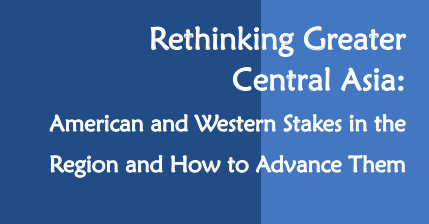Rethinking Greater Central Asia: American and Western Stakes in the Region and How to Advance Them

The EU and Kazakhstan: Developing a Partnership in Trade and Transport
by S. Frederick Starr and Svante E. Cornell
In 2015, the EU revised its Strategy for Central Asia, and finalized an Enhanced Partnership and Cooperation Agreement with Kazakhstan. These welcome steps will not turn the EU into a regional powerhouse overnight, but provide the EU with a platform to play a constructive role in Central Asia. The EU can achieve that if it avoids focusing on issues where it has little hope of direct influence, such as regional security affairs and domestic governance. Instead, to gain such a role eventually, the EU should focus on revitalizing the promise of its visionary initiative of the 1990s – the Transport Corridor linking Europe to Asia via the Caucasus and Central Asia – which it allowed to slip, handing the initiative to other powers, primarily China.

